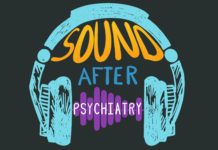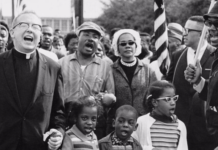Antidepressants Still Linked to Increased Suicide Risk
Bias and financial conflicts in antidepressant trials “contribute to systematic underestimation of risk in the published literature.”
Sherry Julo, Ed White and John Read – Online Support Groups for Psychiatric Drug...
This week on the MIA podcast, we discuss a recent paper that considers the support provided by online support groups when people seek help for psychiatric drug withdrawal. It was published in the journal Therapeutic Advances in Psychopharmacology in January 2021 and the authors are Sherry Julo, Ed White and John Read.
How to Support Healing from Psychosis Versus Imposing Social Control
This article is written for the loving supporter or social worker. My hope is that it will help you gain strategies for how to handle the relationship with someone experiencing psychosis.
Confused, Accused, and Retraumatized
At the hospital, what traumatized me the most was that my freedom was in the hands of a professional who was steadfast in his conviction that I was feeling things I was not.
Informed Consent Must Reflect Information from Online Withdrawal Forums
Online withdrawal forums document an assortment of risks associated with discontinuation of psychiatric drugs. Such information is readily available and must be disclosed during informed consent.
Mental Health Survival Kit, Chapter 2: Is Psychiatry Evidence Based? (Part 1)
Psychiatric diagnoses are not built on science but are consensus-type exercises where it is decided by a show of hands which symptoms should be included in a diagnostic test.
Our Culture Is Abusive
Emotions are viewed as dangerous liars in this culture, and those who express them in a way that makes people in power uncomfortable are diagnosed as "mentally ill."
Patient or Prisoner? My Hospital Experience
We need to come up with a plan that destigmatizes mental health issues for all races, including respectful and non-punitive treatment in in-patient settings.
Patients as Partners: A Social Empowerment Approach to Health and Mental Health
Hugh Polk and Ann Green discuss social medicine with Jessie Fields, a medical doctor working in Harlem, a community leader, and an advocate for transforming our health and mental health care system.
Sound After Psychiatry
In the wake of psychiatry, there was a fracture, a gulf that opened between me and the authentic sound of my voice when it is connected and resonates with my truth.
Mental Health Survival Kit, Chapter 1: This Book Might Save Your Life
The term “psychiatric survivor” says it all in just two words. In no other medical specialty do the patients call themselves survivors because they survived despite being exposed to that specialty.
Another Failed Study of “Personalized” Depression Treatment
Due to lackluster antidepressant study results, researchers test if subgroups of depressed patients show greater improvement.
Remembering Jennifer Kinzie (1979-2021)
Jennifer Kinzie was a licensed mental health counselor who used her lived experience to guide her work—not only as a counselor and therapist, but also as a volunteer with psychiatric survivor groups.
Creative Maladjustment: An Interview with Donzaleigh Abernathy
Donzaleigh Abernathy—goddaughter of the Reverend Dr. Martin Luther King, Jr.—shares her thoughts on the civil rights movement and the legacy of racism in the United States.
Keys to Successful Discontinuation of Antipsychotic Medication
Qualitative study finds that both internal resources and systemic factors play a role in antipsychotic discontinuation outcomes.
Giving Up on Mental Health Care
After 34 years, I've concluded that some psychologists/psychiatrists may genuinely want to help people, but they certainly don't have a good toolbox to do it with and, quite likely, never will.
The BBC, Harrow, and a Public Left in the Dark
The recent report by the BBC on medication-free treatment in Norway, when viewed in conjunction with the media silence on Martin Harrow's latest publication, reveals why the public remains misinformed about the long-term effects of antipsychotics.
Uncomfortable Truths in Survivor Narratives: An Interview with Helen Spandler
MIA’s Ayurdhi Dhar interviews Helen Spandler about how psychiatric survivors challenge and change our thinking about mental health.
Book Review: “Prescription for Sorrow” by Patrick D. Hahn
There are quite a few books published about the lack of benefit and harm caused by so-called "antidepressants." Prescription for Sorrow, by Patrick Hahn, is simply the best one I have read.
In Memoriam: Birgitta Alakare
On February 19, 2021, the world lost Birgitta Alakare, the former chief psychiatrist at Keropudas Hospital in Tornio, Finland and a pioneer in the development of Open Dialogue.
Recovery Rate Six Times Higher For Those Who Stop Antipsychotics Within Two Years
People with "serious mental illness" who stop taking antipsychotics are more likely to recover, even when accounting for baseline severity.
Online Experts on Withdrawal
Online communities are stepping in to help people facing withdrawal effects amass information and receive support for their withdrawal experiences.
The Great Slowdown: Why Breaking Down Is Waking Up
Who is really more ill? A person who responds in a natural way to trauma? Or the indifferent society that locates so-called ‘disorders’ within the people that it harms, rather than itself?
The Role of Love in Mental Health
The one core ingredient on which any recovery from emotional distress depends is the one that never makes an appearance in any medical handbook or psychiatric diagnostic manual—that is, love.
Welcome to Planet Psychiatry
With the leadership of industry and their cosseted, lapdog doctors, psychiatric medications are prescribed indiscriminately to nearly anyone entering a physician’s office with a psychological complaint.

































